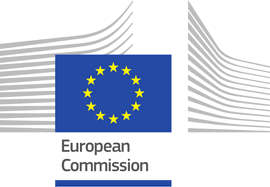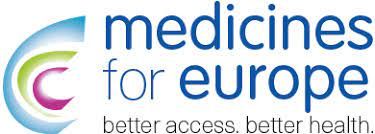The core proposition of biosimilar medicines is to generate savings in the system, but also increase access to the high cost, complex biologic molecules from which they are based.
- Bone Health
- Immunology
- Hematology
- Respiratory
- Dermatology
- Diabetes
- Gastroenterology
- Neurology
- Oncology
- Ophthalmology
- Rare Disease
- Rheumatology
Report: Biosimilar Competition in Europe
Biosimilars have produced more than $20 billion of savings in Europe, but more use of these agents is needed.
In the European Union, biosimilars are capturing an increasing share of territory from originator drugs, improving savings and patient access to critical biologics, according to a report from IQVIA, a pharmaceutical industry analyst. The report takes a close look at 23 EU markets.
“Biosimilar manufacturers are increasingly prepared for loss of exclusivity opportunities and creating increasingly crowded and competitive marketplaces within European countries,” IQVIA states. “Those who have the right system in place will be able to benefit most.”
The data analysis firm said that previously, it took up to 2 years for new biosimilars to capture as much as a 50% market share from reference (originator) biologics. Now, this is being accomplished in less than 1 year, IQVIA said.
Companies from the European Union used to be the dominant players bringing biosimilars to market. In the period from 2006 to 2010, they represented 67% of manufacturers gaining EU approvals for new biosimilars.
During that time, US and Indian companies each accounted for an 11% share of these approvals. But now many other countries are involved in biosimilar development and commercialization, as represented by the following shares for 2021:
- European Union – 11%
- United States – 9%
- India – 20%
- Republic of Korea – 10%
- China – 16%
- Other Asia-Pacific – 16%
- Latin America – 8%
This suggests a healthy competitive environment, but according to IQVIA it’s getting harder, not easier, for companies to bring new biosimilars to the European Union marketplace.
“The high upfront investment and production costs, coupled with pricing pressures and limited access, are raising the bar for biosimilar developers. An increasing number of pharmaceutical companies decided to not launch biosimilars or continue their development plans, putting sustainability of the biosimilars marketplace as a critical issue for all stakeholders,” authors of the report wrote.
In the European Union, biologics represent 34% of medicine spending based on list prices, and this is growing at a 10.5% annual rate. This is more than double the past of growth (5.1%) for the total market, which includes small molecule drugs plus biologics and biosimilars, IQVIA said.
Biosimilars and the Pandemic
The firm identified the pandemic as a challenge for some elements of the biologics market, but said that in the European Union, at least, it has not held up the approvals of new biosimilars. “From a regulatory standpoint, the European Medicines Agency continued to perform well on approving innovative medicines and biosimilars alike. There were at least 7 new biosimilars approved in the European Union during 2021, vs 9 approved in 2020, IQVIA said.
Pandemic-related factors impeding the growth of medicine sales in 2021 included the difficulty of conducting face-to-face patient/physician consultations and difficulty switching prescriptions to biosimilars or starting patients on them.
As measured by list prices and volume of prescriptions, biosimilar savings in 2020 amounted to $6.5 billion, although manufacturer rebates and discounts obscure the real value, IQVIA said. This compares with slightly over $4 billion in savings in 2019.
Much of the 2020 savings was attributed to adalimumab and infliximab biosimilars.
“The core proposition of biosimilar medicines is to generate savings in the system, but also increase access to the high cost, complex biologic molecules from which they are based,” but this is not happening evenly from country to country, IQVIA said.
“Despite significant list price reductions, subsequent confidential rebates, and increasing competition, not all European countries have been either willing or able to increase access to biologic medicines in the available therapy classes,” authors of the report said.
Over the next 10 years, reference drugs in the European Union are expected to lose patent exclusivity predominantly in the oncology (29%), endocrine (11%), and blood and lymphoma (21%) categories. However, IQVIA predicted there will be challenges in getting manufacturers to produce biosimilars for some disease types for which reference drugs are losing exclusivity.
In a recent interview, The Center for Biosimilars® spoke with experts from Medicines for Europe, a trade association of biosimilars and generics producers, about a market survey conducted by the association that elucidated trends affecting biosimilars in the European Union.
Commenting on the IQVIA report, Isabell Remus, chair of the biosimilar medicines sector group of Medicines for Europe, stated: “Patients should have equitable access to the therapy they need irrespective of where they live. However, in Europe we still see unacceptable inequalities.
"Biosimilars are part of the solution, and they will only deliver their full potential with the continuous and strong support of the European Commission and every member state implementing the suitable policy interventions in support of uptake," Remus said.
Newsletter
Where clinical, regulatory, and economic perspectives converge—sign up for Center for Biosimilars® emails to get expert insights on emerging treatment paradigms, biosimilar policy, and real-world outcomes that shape patient care.


